
U-TN’s Robert Norrell on Booker T. Washington & Voc-Tech
Prof. Robert Norrell explores Booker T. Washington's early life in slavery, his transformative leadership at Tuskegee Institute amidst Jim Crow racism, and his advocacy for vocational education as a means for racial uplift. He also discusses Washington’s 1901 autobiography, Up From Slavery; his controversial White House dinner with President Theodore Roosevelt; and his often overlooked legacy following the activism of the 1960s Civil Rights era.

Smothering Gas Exports: President Sides with Environmentalists Over Environment
Dr. Benjamin Zycher, a senior fellow at the American Enterprise Institute, talks on the impact of President Biden's executive order to halt liquefied natural gas export approvals. He explores potential economic impacts, the response from trading partners, and the negligible effect on climate.

Pioneer Statement on Continuing Slide in Massachusetts’ Revenue
The Commonwealth’s tax collections continue to slide, totaling $3.594 billion in January, $268 million below what the state collected in January 2023, and short of the revised benchmark by $263 million. Massachusetts state government must live within its means by reducing FY2025 spending. The days of fiscal surpluses, unprecedented increases in year-over-year spending, and flowing federal aid have come to an end.
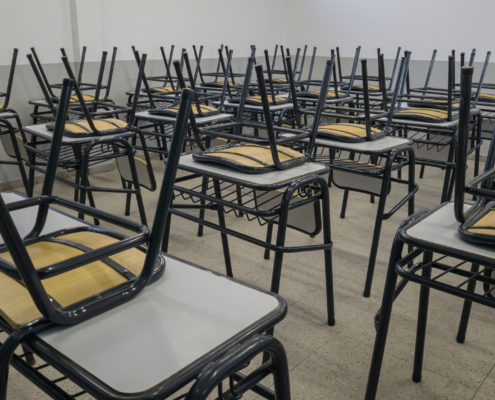
Teachers strikes hurt the students
At a time when the country’s basic commitment to the rule of law is being questioned, Newton educators are teaching their students that breaking the law and thumbing one’s nose at a judge’s order are OK — if it is in your self-interest.

Pioneer Statement on Decline in State Revenues
The Commonwealth’s finances have stumbled hard in recent months, and based on a report the Department of Revenue (DOR) sent to the Legislature in January, the trend shows no signs of easing. Massachusetts needs a renewed emphasis on fiscal discipline and pro-growth policies to make the state economically competitive again.

BC’s Dr. Matthias von Davier on TIMSS & K-12 Global STEM
Dr. von Davier explores his educational background and its influence on directing TIMSS & PIRLS, shedding light on psychometrics and standardized testing. He discusses the shift in education policy's focus, the global education data landscape, and the pandemic's effects on K-12 education around the world. Dr. von Davier addresses the alarming decline in U.S. educational performance, emphasizing the urgency to bridge achievement gaps. Drawing from international experiences, he highlights global examples for American policymakers from higher-performing countries, emphasizing the crucial links between education, skills, and innovation on the global economy.

U.S. Manufacturing Health: Does the U.S. Need an Industrial Policy?
Scott Lincicome from the Cato Institute discusses the U.S. manufacturing industry, international trade, and industrial policy. He dispels the myth of manufacturing decline, highlighting sector evolution and productivity. The conversation moves to industrial policy, emphasizing the need for targeted protection and cautioning against broad subsidization due to potential inefficiencies.

Skill-based immigration could ease labor shortage
A recent Biden administration executive order that amends the Schedule A list, which identifies occupations experiencing labor shortages and allows immigrants in those occupations to expedite their employment in the U.S., could positively impact the hiring of skilled international workers for years to come — a welcome development as the country and Massachusetts struggle to attract talent amidst a worsening labor shortage.
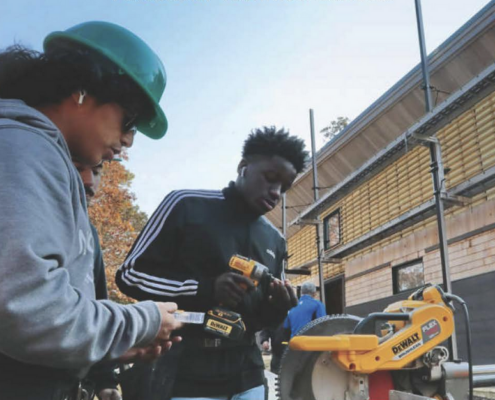
Admissions lotteries would harm vocational-technical schools
Expanding the number of seats available in vocational-technical high schools is a good investment for Massachusetts. But it’s critical they are expanded in a way that promotes equity without endangering the academic and occupational excellence that continues to drive burgeoning demand for these schools.

ExcelinEd’s Dr. Cara Candal on National School Choice Week
Dr. Candal delves into the evolving landscape of K-12 education in the U.S., examining the expansion of private school choice programs post- U.S. Supreme Court decisions, changing political dynamics around charter schools, strategies of the national school choice movement in low-performing states, the role of parent-driven models during the pandemic, the significance of voc-tech education, and addressing underperformance and achievement gaps.
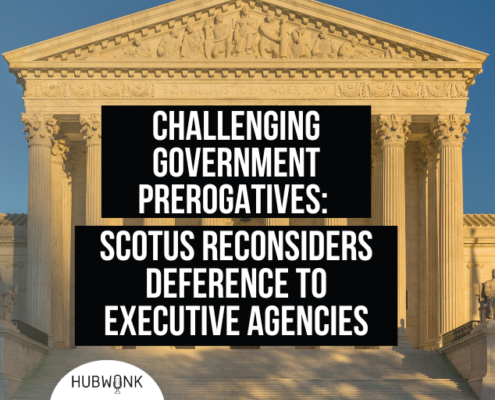
Challenging Government Prerogatives: SCOTUS Reconsiders Deference to Executive Agencies
Joe Selvaggi engages in a conversation with legal scholar Ilya Shapiro from the Manhattan Institute regarding the Loper Bright Enterprises Supreme Court case that questions the Chevron Doctrine. This doctrine instructs judges to defer to government agencies in situations where laws are silent or unclear.

Telehealth Progress Slowed in 2023
A new report by Cicero Institute, Pioneer Institute, and Reason Foundation reveals worrying stagnation in state-level telehealth expansion efforts in 2023, with only a few exceptions. Progress made during the pandemic is being lost even as provider shortages worsen, raising concerns about patients’ access to care.

‘High’ U.S. Drug Prices Mask Freeloading by Other Nations
The drug company’s choice is to walk away from millions in revenue from a given country and deny their people a lifesaving drug, or swallow hard and accept an unfair price that is nowhere near the drug’s value. For the sake of shareholders and patients, drug companies typically accept the unfair price and devote the revenue to offsetting their previous investments. In short, other nations are freeloading off of American R&D.
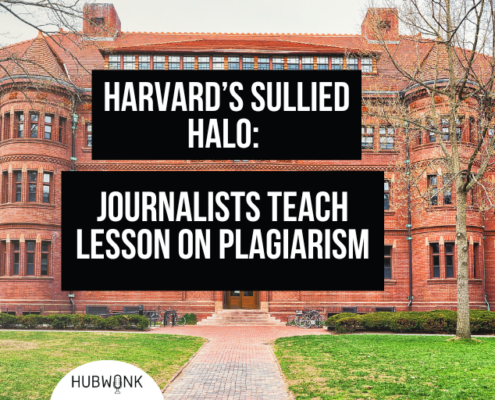
Harvard’s Sullied Halo: Journalists Teach Lesson on Plagiarism
Joe Selvaggi talks with investigative reporter Chris Brunet about his role investigating and exposing former Harvard President Claudine Gay’s academic plagiarism, a story that lead to her eventual resignation.

NYT Bestseller Jonathan Eig on the Rev. Dr. Martin Luther King, Jr.
Jonathan Eig delves into MLK's early spiritual leadership, the influence of Langston Hughes on his speeches, his relationship with his wife, Coretta Scott King, and the Southern Christian Leadership Conference's challenges. He discusses historic events in Birmingham, Alabama, the March on Washington, MLK's struggles in Chicago, the Poor People's Campaign, and the events leading to his assassination in 1968. Eig underscores the multifaceted aspects of MLK's life and provides insights on drawing lessons for contemporary challenges in race relations and leadership.

My Musings on Massachusetts’ Fiscal Picture
Since the start of FY2024 on July 1, 2023, the state has experienced six straight months of revenues falling short of expectations. The single biggest factor is the unprecedented growth of the state budget since FY2021. The $15 billion increase in state spending contextualizes the seemingly modest projected revenue growth of 1.6 percent for FY2024 by highlighting that the base is very inflated.

Olympic Track Medalist Gabby Thomas
Gabby Thomas, Pioneer Valley native, Harvard alum in neurobiology, and Olympic sprinter, won bronze and silver in Tokyo, she also pursued a master's in epidemiology. She shares her journey excelling both in academics and athletics.

Drug Discount Distortions: How Middlemen Increase Costs and Reduce Access
Joe Selvaggi talks with Drs. Bill Smith and Robert Popovian about how the complex system of rebates from drug companies to insurance firms serve to increase costs and reduce access for patients.

T.J. Stiles on Cornelius Vanderbilt & American Business
T.J. Stiles delves into the life of America’s first tycoon, Cornelius Vanderbilt, exploring his rise to historic wealth in steamboats, shipping, and railroads. He discusses Vanderbilt's legal battles, philanthropy, and enduring legacy, exploring his business competitiveness and wide impact on 19th-century America’s economy.

Studying the Humanities in the 2020s
At a time of tumultuous and sometimes vitriolic debates on American campuses, here are seven guiding principles to help college student thinking about studying history or any other humanities subject.

Carol Zaleski on The Lord of the Rings & Narnia
Prof. Carol Zaleski discusses the literary impact of the Inklings, focusing on J.R.R. Tolkien and C.S. Lewis, exploring their lives, works, and enduring moral contributions in today's cultural landscape.

Boston’s Building Bargain: Coaxing Commercial Conversions to Condos
Joe Selvaggi discusses the strategic goals of Boston's Downtown Office to Residential Conversion Pilot Program with Arthur Jemison, the head of BPDA planning. The aim is to transform underutilized offices in Downtown into vibrant places to live.
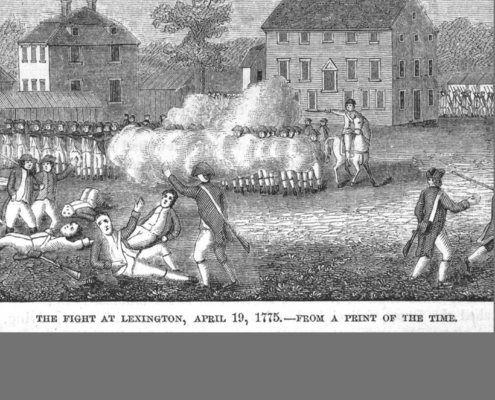
Better Civics Education Is the Massachusetts Way
The fight for more comprehensive civics education in the Bay State has persisted for years. The Legislature's recent override of Gov. Maura Healey’s cut to the state’s modest civics instruction budget suggests that in many in Massachusetts — including parents, teachers, and lawmakers — support strengthening the state’s civics and history curriculum, particularly with mounting evidence of declined student performance across the country.

Emily Hanford on Reading Science & K-12 Literacy
Emily Hanford, host of the hit podcast Sold a Story: How Teaching Kids to Read Went So Wrong, discusses the science of reading, the long whole language v. phonics debate, the impact of the digital age on learning, and the importance of academic background knowledge for children becoming better readers.

SCOTUS Wealth Tax: Are Appreciated Assets Income?
Joe Selvaggi talks with CATO Institute constitutional scholar Thomas Berry about the recently argued Moore v. U.S.A. case, which challenges the idea that income must be realized before it can be taxed.

Francine Klagsbrun on Golda Meir’s Leadership and the State of Israel
This week on The Learning Curve, Francine Klagsbrun, author of "Lioness: Golda Meir and the Nation of Israel," discusses the remarkable life and legacy of the woman who left Kiev as a child, grew up in Milwaukee, emigrated to Mandatory Palestine, was a signatory to the declaration of independence for the state of Israel, and rose to become that nation's fourth prime minister.

Busting Big Business: Antitrust Comes for Google and Big Sandwich
Joe Selvaggi talks with Dr. Brian Albrecht, an economists with the International Center for Law and Economics. They separate fact from fiction when it comes to the public’s and politicians’ concerns over allegedly anti-consumer practices of big business and discuss when antitrust action by the federal government is justified.

The Massachusetts Workforce: Abundant Resources, Steep Challenges
Massachusetts features a strong workforce training system with abundant resources yet faces challenges in matching jobs and applicants, training youth, and attracting sufficient numbers of skilled immigrants, according to a pair of studies from Pioneer Institute.
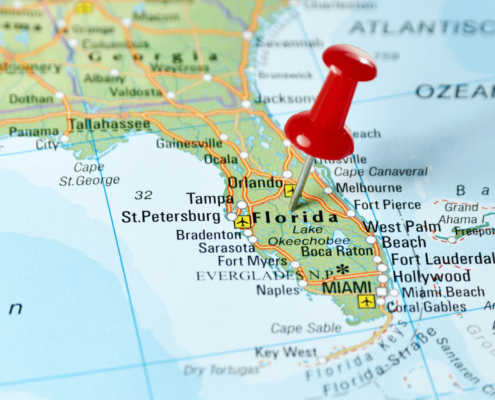
Except in Florida, There’s Really No (High School) Debate
In much of the country, the state of America’s High school debate is not strong. Teachers and education professionals have become indoctrinated in an identity-obsessed, grievance-seeking body politic. But in Florida, students must thoroughly research debatable positions and are actually expected to engage with those who disagree.
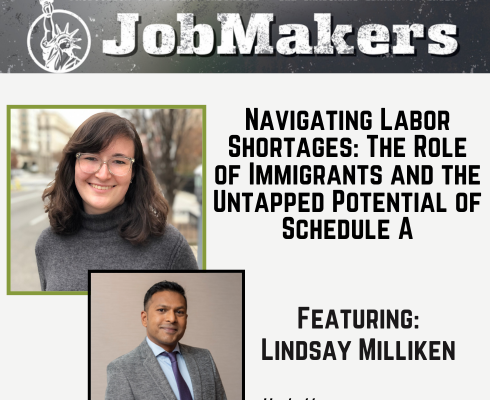
Navigating Labor Shortages: The Role of Immigrants and the Potential of Schedule A
Milliken underscores the current unprecedented combination of low unemployment and high job openings, particularly in sectors like hospitality, healthcare, and education. She addresses the vital role immigrants play in the workforce, and advocates for leveraging Schedule A, a regulation that expedites the green card process for occupations facing high labor demand.
